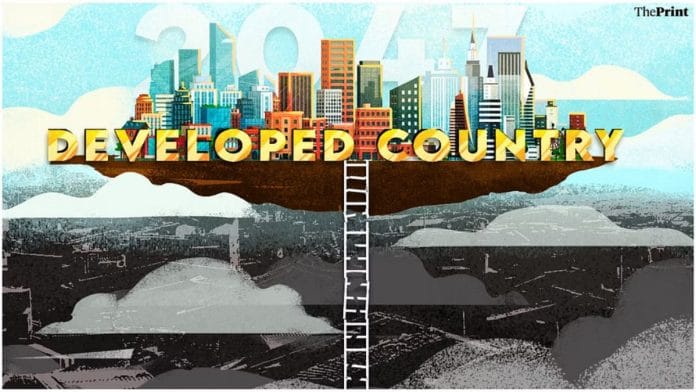The invention of the airplane. Polio eradication in India. Uncovering the structure of DNA. The world’s largest search engine. What common denominator made these possible? Collaboration. It’s not a new idea but remains a powerful one – with the potential to combat our toughest challenges. The complex social issues facing India today – millions in poverty, rural and urban unemployment, low women labour force participation rates – are fast surpassing the capabilities of individual efforts to resolve them. Central to this equation is the need for bold solutions, which can be driven by collective action across non-profits and government as a vehicle for social change. By joining forces, we can drive change beyond our own communities, creating impactful solutions and scalable models that reach the last mile.
To collectively unlock social impact and drive sustainable, positive change in communities, we need to foster strong partnerships between non-profits and governments. A siloed approach to work undermines scalability, creates trust deficit and structural inefficiencies, and widens gaps in stakeholder and metrics alignment.
Collaboration can amplify impact and drive transformative change. Non-profits possess rich local knowledge about the communities they serve, bring agility to operations, and can extend technical expertise through capacity building, knowledge-sharing, and leveraging technology. The government, as the key player at scale, leverages its influential policies, infrastructure, financial resources, and access to public systems to ensure that a program’s impact is felt across the nation.
How do we develop partnerships that ensure successful outcomes? The convergence of a few factors is necessary– committing to long-term goals, defining responsibilities early, collaborating in design and pilot phases, using research insights to guide the approach, aligning mission goals with community needs and national priorities, empowering community ownership, and fostering a supportive environment for change.
This collaborative vision is increasingly supported by the nation’s CSR leaders, with 87% of them indicating interest in multi-stakeholder collaboratives with the government and other players according to the 2024 Dus Spoke India Inc report.
The time to act and drive India’s development agenda forward is now! We have witnessed several successful partnerships between the government and non-profits in India. Take for instance, EkStep Foundation which supports the Government’s DIKSHA Platform- a knowledge-sharing platform to support millions of teachers and students across the country with educational resources. Similarly, Khushi Baby is the Nodal Technical Support Partner to the Government of Rajasthan’s Department of Medical, Health, and Family Welfare. Shikshāgraha, a collaborative of non-profits partnering with State and District Governments. is an education movement that aims to bring together 100 partners by 2025 to improve and completely transform 1 million public schools across India by 2030. More such examples can be seen in different corners of the country. Sauramandala Foundation is a good example of this since it works closely with the Government of Meghalaya to improve the development indicators of remote, vulnerable, and disconnected communities.
Our work here at The/Nudge Institute, has also helped us witness firsthand, the effect of collaborating with the government as a multiplier of social impact, driving forward our goal to alleviate poverty- which otherwise would have been impossible to accomplish. In our journey to accelerate economic inclusion for the most excluded, we have partnered with the Ministry of Rural Development to target the most excluded households effectively, and our Economic Inclusion Program has been carefully integrated into institutions under the Deendayal Antyodaya Yojana – National Rural Livelihoods Mission (DAY-NRLM), a flagship program to reduce poverty.
We have impacted 24,000 households since 2022, through 6 special pilots with the Ministry of Rural Development and plan to reach a goal of 1 million households (5 million people) over the next five years in partnership with Central and State governments. informed by the multi-dimensional effects we are observing in the districts where we operate. The results of our own pilot in Jharkhand so far have been encouraging: 96% of households the project supported diversified their livelihoods, and 95% of respondents consumed three meals a day, compared to 18% measured when the program began.[1] Such partnerships prove to be greater than the sum of their parts – offering promise for transformative, and even systemic, change.
To move towards a future of sustainable growth and deeper collaborations, creating opportunities for stakeholders across the ecosystem to convene and connect and to take the agenda forward beyond conversations is a must. To leverage the power of the collective, we designed charcha – India’s largest collaborative convening. Since 2020, it has encouraged visionaries, policymakers, innovators, and pioneers across government, civil society, and markets to come together and engage in enriching discussions.
This year, we hope to spark conversations and action on resilient livelihoods and a range of underlying themes that can contribute to the roadmap to an inclusive and Viksit Bharat by 2047 – 100 years of our independence.
At charcha ‘24, organized by The/Nudge Forum, India’s foremost collaborative convening, a multitude of industry experts and partners will converge to explore various topics. With 40+ sessions spanning across 12 immersive, livelihood-intersecting themes, supported by 20+ sector-leading co-hosts, charcha is convening to collaborate towards the shared goal of Viksit and Inclusive Bharat by 2047.
Charcha is an initiative towards closing the distance between samaaj, sarkaar and bazaar, (society, government and markets) and will be held at India Habitat Centre, New Delhi from August 20-22, 2024.
To know more, visit: charcha 2024
Subhashree Dutta is the Managing Partner, The/Nudge Institute. Views are personal.






